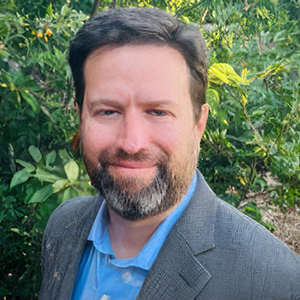Kevin Bender is professor of neurology at the University of California, San Francisco. His lab focuses on understanding how the brain encodes information at the synaptic, cellular and network level. Work primarily revolves around understanding how ion channels and modulation of ion channels contribute to these processes in health and in neurodevelopmental and neuropsychiatric conditions. This includes studies related to neurodevelopmental channelopathies, for which he is grateful to be able to work with close colleagues and partners from academia, industry and patient advocacy groups.

Kevin Bender
Professor of neurology
University of California, San Francisco
From this contributor

Should I work with these people? A guide to collaboration
Selected articles
- “Impaired cerebellar plasticity hypersensitizes sensory reflexes in SCN2A-associated ASD” | Neuron
- “Physical and functional convergence of the autism risk genes Scn2a and Ank2 in neocortical pyramidal cell dendrites” | Neuron
- “Arrestin-3 Agonism at Dopamine D3 Receptors Defines a Subclass of Second-Generation Antipsychotics That Promotes Drug Tolerance” | Biological Psychiatry
- “The Autism-Associated Gene Scn2a Contributes to Dendritic Excitability and Synaptic Function in the Prefrontal Cortex” | Neuron
- “Periadolescent Maturation of GABAergic Hyperpolarization at the Axon Initial Segment” | Cell Reports
Explore more from The Transmitter
Astrocytes orchestrate oxytocin’s social effects in mice
The cells amplify oxytocin—and may be responsible for sex differences in social behavior, two preprints find.

Astrocytes orchestrate oxytocin’s social effects in mice
The cells amplify oxytocin—and may be responsible for sex differences in social behavior, two preprints find.
Neuro’s ark: Spying on the secret sensory world of ticks
Carola Städele, a self-proclaimed “tick magnet,” studies the arachnids’ sensory neurobiology—in other words, how these tiny parasites zero in on their next meal.

Neuro’s ark: Spying on the secret sensory world of ticks
Carola Städele, a self-proclaimed “tick magnet,” studies the arachnids’ sensory neurobiology—in other words, how these tiny parasites zero in on their next meal.
Autism in old age, and more
Here is a roundup of autism-related news and research spotted around the web for the week of 2 March.

Autism in old age, and more
Here is a roundup of autism-related news and research spotted around the web for the week of 2 March.